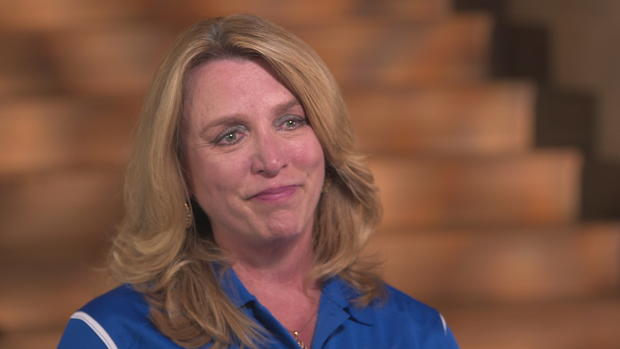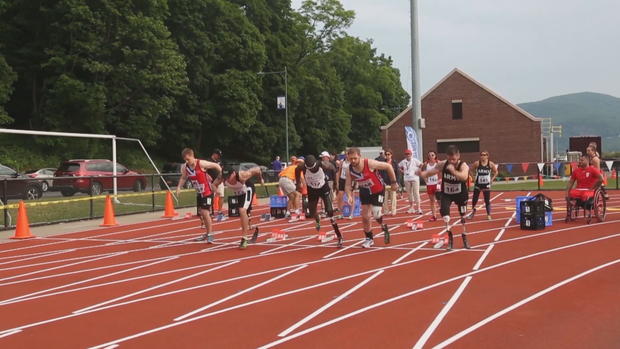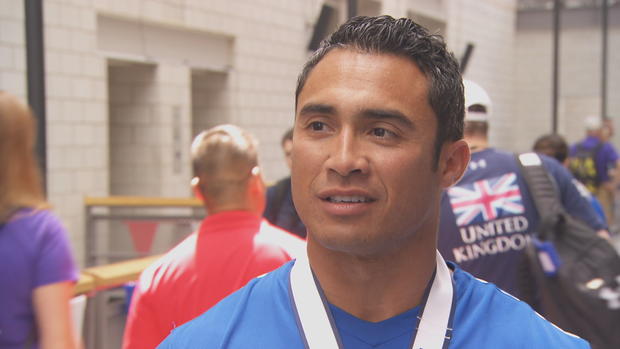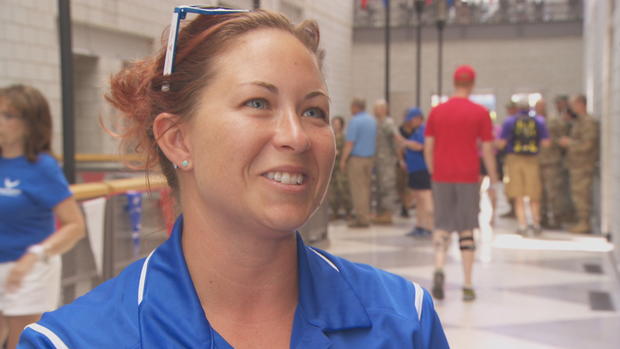Air Force secretary on the most important part of her job
The woman who leads the U.S. Air Force just wrapped up one of her most inspiring personal missions: cheering on some of the troops who risked everything for their country and now work to overcome their challenges through athletic competition.
Secretary Deborah Lee James is the 23rd secretary of the Air Force, and only the second woman to hold the position. She oversees a budget of more than $110 billion and a force of almost 300,000 men and women.
It is looking after the welfare of those who serve under her -- and their families -- that she considers the most important part of her job.
CBS News correspondent Vladimir Duthiers hopped a flight with James. The destination? West Point, the U.S. military academy, to watch the final day of the Warrior Games, an annual Olympic-style competition for wounded servicemen and women put on by the Department of Defense.
"These are survivors but more importantly they are thrivers. And they are demonstrating resiliency, demonstrating teamwork, the power of camaraderie," James said.
Some of the athletes have obvious injuries. But many have been broken inside, suffering brain injuries, and post-traumatic stress -- what the secretary calls "invisible wounds."
"Invisible wounds may be invisible but they are real and they are serious. And our job, my job in the Air Force is to give visibility to the invisible wounds of war," James said.
Chris Farrell, who competed in track and field events and is a member of the Air Force "sitting volleyball" team, suffers from post-traumatic stress.
"This is my first Warrior Games as well, and it's been about recovery. Not only for just the adaptive sports side of it, but also the mental and personal side of it," Farrell said.
Mallory Dinkle was injured in Kuwait when the vehicle she was driving was run off the road.
"What does it mean to participate in the Warrior Games?" Duthiers asked her.
"It means the world to me. ... And it feels good to be around people that I don't have to pretend that I'm okay around. No one's judgy. It gives me goosebumps, it's such a good feeling," Dinkle said.
While the Air Force has had a good showing at the Warrior Games, these are tough times for the men and women who patrol the skies.
"We have been downsizing our Air Force for the better part of 25 years. ... Today we are the smallest Air Force that we have ever been since we became an air force in the year 1947," James said. "And when you couple that with nonstop operations in a globally engaged way for the last 25 years, it's also hurt our readiness, our ability to keep going and do our job."
Yet despite the depleted ranks, a reluctance to commit ground troops to Syria has left the lion's share of the battle against ISIS to the Air Force.
"Well, what has been going on in the Middle East, both against ISIL in Iraq and Syria, and then of course there is also ongoing operations in Afghanistan. It has been a strain on operations, we're deploying people much more frequently," James said.
"Is it troubling to you that, when talking to some of the men and women today, that they've deployed so often?" Duthiers asked.
"Well, it's the world that we live in," James responded. "The world is very complex and we are a globally-engaged Air Force. So we don't get to take a day off."
Secretary James told us her number one priority is taking care of the men and women of the Air Force. That includes increasing diversity and improving pay and compensation. It also means looking after her people when they are no longer able to serve -- which is why the Warrior Games are so special to her.
"I was watching you during the volleyball tournament, and you were sort of like, almost like you were back in high school or something, cheering for the team jumping around waving and screaming," Duthiers observed.
"It was fantastic. Well, you were there, it was a great game. It was a great game. It was a nail biter," she said. "It was very exciting... Being able to compete like that means the world to them. It means the world to me as well."



